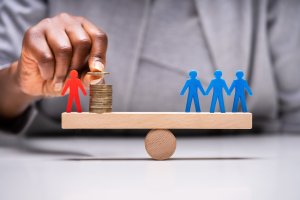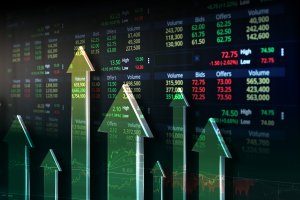The success of projects for pandemic preparedness and response depends on the strength of government-business collaborations.
With just 4.2 percent of the world’s population, the United States had, as of July 21, 2020, 26.0 percent of its confirmed Covid-19 cases and 23.1 percent of its deaths. The magnitude of the tragedy raises the critically important counterfactual question of how the United States as a nation would have fared had there been competent and committed political leadership in place when, during January 2020, intelligence indicating the severity of the unfolding pandemic became available. A partial answer to this question lies in identifying the organizational and technological capabilities to develop, produce, and deliver “countermeasures”—personal protective equipment (PPE), ventilators, diagnostic tests, therapies, and vaccines—that a prepared federal administration would have been able to mobilize to respond to the pandemic. Main repositories of the necessary capabilities are government agencies and business firms, with the development, production, and delivery of countermeasures heavily reliant on government-business collaborations (GBCs). We contend that the success of projects for pandemic preparedness and response depends on the strength of GBCs.
In this essay, we focus on the particular case of ventilators for the Strategic National Stockpile (SNS). We trace the historical evolution within the federal government of the current system of pandemic preparedness for and response through the end of the Obama administration. We then analyze the particular GBCs to develop ventilators for the SNS initiated and implemented by the Biomedical Research and Development Authority (BARDA), under the Assistant Secretary for Preparedness and Response (ASPR) within the U.S. Department of Health and Human Services (HHS). BARDA initiated two successive GBCs, one beginning in 2010 and the second in 2014, with two different business firms, for the purpose of developing portable, easy-to-use, and affordable ventilators for the SNS. We show that the strength of these collaborations lay with the innovative ventilator manufacturers with which BARDA contracted. The weakness of these GBCs appeared when these innovative manufacturers fell under the control of business corporations committed to the ideology of “maximizing shareholder value” (MSV). In each case, the financialized business corporation undermined development and delivery of ventilators to the SNS.
We then explain why, in general, we should expect that business firms driven by MSV will be unreliable partners in GBCs—at the expense of the nation’s preparedness for and response to an emergency such as the Covid-19 pandemic. This lack of reliability is rooted in the strategic orientation of corporations which have put stock-market valuation of the company ahead of its innovative performance in producing goods and services. The Covid-19 crisis has already revealed the extent to which, in the U.S. economy, the stock market functions not to support value creation but rather as the prime means of value extraction. The most overt form of value extraction is the corporate practice of open-market repurchases of the company’s own shares—aka stock buybacks—typically done in addition to copious distributions to shareholders in the form of cash dividends. In the decade 2010-2019, companies in the S&P 500 Index spent $5.3 trillion on buybacks, representing 54 percent of net income, in addition to $3.8 trillion (39 percent of net income) distributed to shareholders as dividends.
In view of this “predatory value extraction,” we conclude this essay with the “$5.3 trillion” question for executives and directors of corporations who, in their embrace of MSV ideology, must bear significant responsibility for the failure of the United States to respond to not only the Covid-19 pandemic but also climate change and income inequity. The question: Why does the company that you head do stock buybacks? In particular, we direct this question to the executives and directors of three corporations that, as of the year 2020, are the biggest repurchasers of their own stock in history: Microsoft at number three, ExxonMobil at number two, and Apple at number one. We also pose this question to the senior executives and board members of any company engaged in the practice who, in August 2019, signed the Business Roundtable (BRT) Statement of the Purpose of a Corporation, which explicitly rejected the BRT’s 1997 pronouncement that “corporations exist principally to serve shareholders,” replacing it with a redefinition of “the purpose of the corporation to promote ‘an economy that serves all Americans’.”




